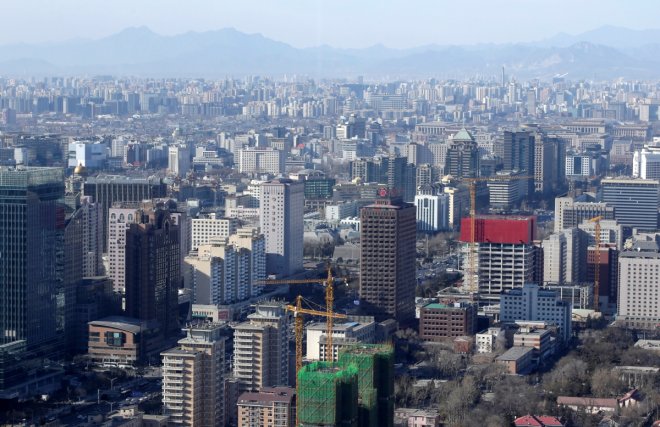
China's economy grew a slightly more than expected 6.8 percent in the fourth quarter, supported by higher government spending and record bank lending. But, the decision to double down on spending has stoked concerns about an explosive rise in debt.
The country also faces growing uncertainties from a cooling housing market as the government is trying to push through painful structural reforms. These reforms could help in dealing with the root-cause of the rising debt and housing problems but will weigh on near-term growth.
The National Bureau of Statistics said on Friday that in 2016, the world's second-largest economy expanded 6.7 percent roughly in the middle of the government's 6.5-7 percent growth target. This rate is still the slowest pace in the last 26 years.
Reuters reported that economists had expected China to report 6.7 percent growth for both the fourth quarter and the full year. In the third quarter, the nation's economy grew 6.7 percent.
Although China has a solid economic base this year compared to last year, it has to face increasing uncertainties in 2017. Economists say the housing frenzy is showing signs of cooling and the impact of previous stimulus measures are expected to fade.
However, if U.S. President-elect Donald Trump imposes tough protectionist measures on trade, China might have to face new pressure for its sluggish exports.
"While Chinese growth looks stable into early 2017, a more marked slowdown by the second quarter appears inevitable," Gene Frieda, global emerging markets strategist at asset management giant PIMCO, told Reuters.
"Growth has been stabilized only after massive fiscal and credit stimulus. China's total government and private sector debt will likely surpass 285 percent of GDP this year, a 90 percent increase since 2008," Frieda added.
According to the bureau, in October-December, the gross domestic product (GDP) rose 1.7 percent quarter-on-quarter from the previous three months in comparison to the 1.8 percent growth in July-September. The analysts had expected the quarterly growth would ease marginally to 1.7 percent.
Last week, the head of economic planning said that the conditions have been generally stable at the start of 2017. It has continued the "steadying and good" momentum from the second half of 2016.
On the other hand, the policy sources told Reuters that the Chinese leaders would surely lower their economic growth target to around 6.5 percent in 2017 in order to give more space to push reforms to contain debt risks.
Meanwhile, another fresh data on Friday showed that the economic trend remained largely intact in December 2016. The last month's investment and factory output growth were recorded to be slightly below expectations, while the retail sales rose more than expected.
The policy insiders said the central bank could slightly tighten credit conditions in 2017. But, this might not raise the interest rates despite an expected pick-up in inflation.
The analysts listed out the major risks this year, including a cooling property market that can be one of the major threats to the economy. In 2016, China's average new home prices surged 12.4 percent, however, in recent months the gains have moderated.
The corporate debt of the country has climbed to 169 percent of GDP with the international institutions repeatedly urging Beijing to act quickly in order to tackle the problem to avoid a financial crisis.








